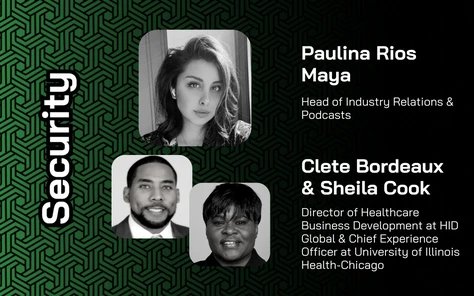What is Google Veo? Inside the AI Video Generator
Is TikTok Safe? How the Viral Video-Sharing App Uses Your Data
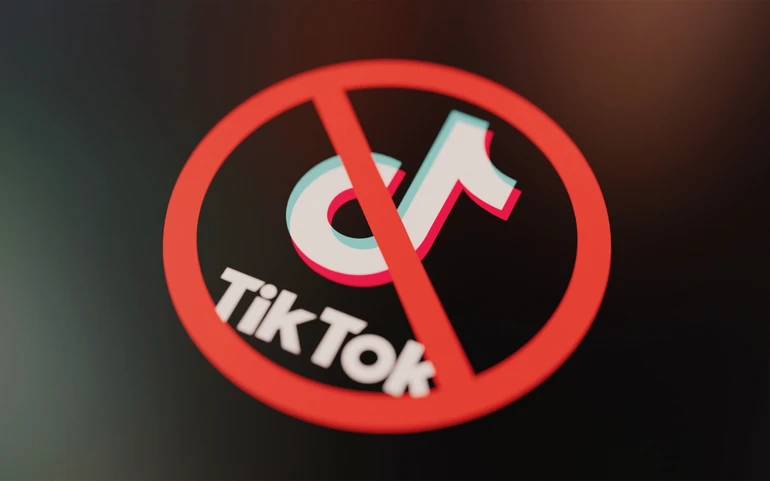
Nothing has taken the internet by storm quite like TikTok. Since the start of the pandemic in 2022, the Chinese video-sharing app has grown from being a niche dancing and lipsyncing fad to easily being one of the most popular social platforms in the world.
Now welcoming over 1 billion active users globally and quickly catching up to social media giants like Instagram and Facebook, the platform continues to soar in popularity as more and more people get hooked to its short video format and algorithmic content feed.
But with every new user that joins the app, more and more people are growing concerned over one thing – TikTok’s safety. It’s a concern that has led multiple governments around the world – including the UK, the White House, and governments across the EU to ban the app from devices owned by government personnel.
It’s also a topic that has been central to the discussions in US Congress about potentially permanently banning the social app across the US – a possibility that continues to become more likely reality with every ruling on the issue.
With governments and multiple high-profile figures concerned about how TikTok could damage its users, is TikTok really safe?
This article tells you everything you need to know about TikTok’s safety, exploring the apps, data collection practices, privacy, and whether it’s safe to use.
What is TikTok?
For those of you who have been living under a rock, TikTok is a popular social media platform focused on creating, sharing, and watching short-form videos.
Videos typically range from 3 seconds to 10 minutes, with a focus on entertainment and quick bursts of content, and users can add filters, effects, background music, stickers, and even collaborate with others on split-screen duet videos.
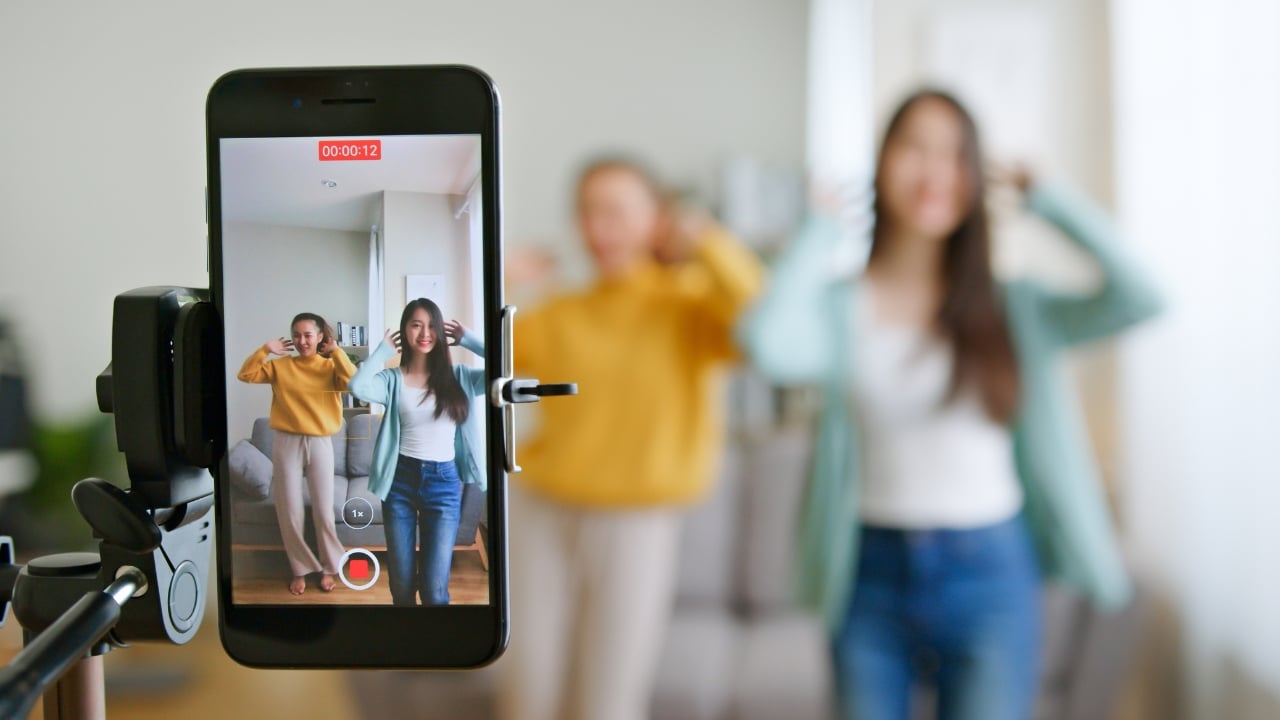
While originally known for lip-syncing and dance trends, TikTok offers a wide variety of content, including comedy skits, educational videos, vlogs, and informational pieces, and it has become one of the most downloaded apps worldwide – particularly popular among younger demographics.
TikTok's algorithm personalizes the feed based on user preferences, making it known for its addictive quality and high user engagement.
New trends, challenges, and features emerge regularly on the platform’s For You Page, keeping the platform dynamic and engaging, and people glued to their screens.
Is TikTok Safe?
TikTok can be considered as safe to use as other major social media platforms available today. The platform collects user data for targeted advertising, personalizes content, and like any platform with direct messaging, can be a target for scammers.
Still, TikTok also has its own set of safety concerns that users should be wary of. While the app’s privacy policy is similar to other platforms, there have been concerns about the platform practice of storing data outside of the US due to its connection with the Chinese company Bytedance.
Chinese companies are subject to laws that grant the government broad access to user data. This raises concerns that the Chinese government could potentially compel ByteDance to share user information collected by TikTok, even if it operates outside China.
While TikTok has consistently denied these allegations and taken steps to address concerns – including storing US user data on Oracle servers – ITS lack of complete transparency and the legal framework in China continues to raise significant privacy and security anxieties.
TikTok collects also a significant amount of user data, including browsing history, location information, and device information, and critics fear this data could be shared with the Chinese government for spying, surveillance or tracking US citizens.
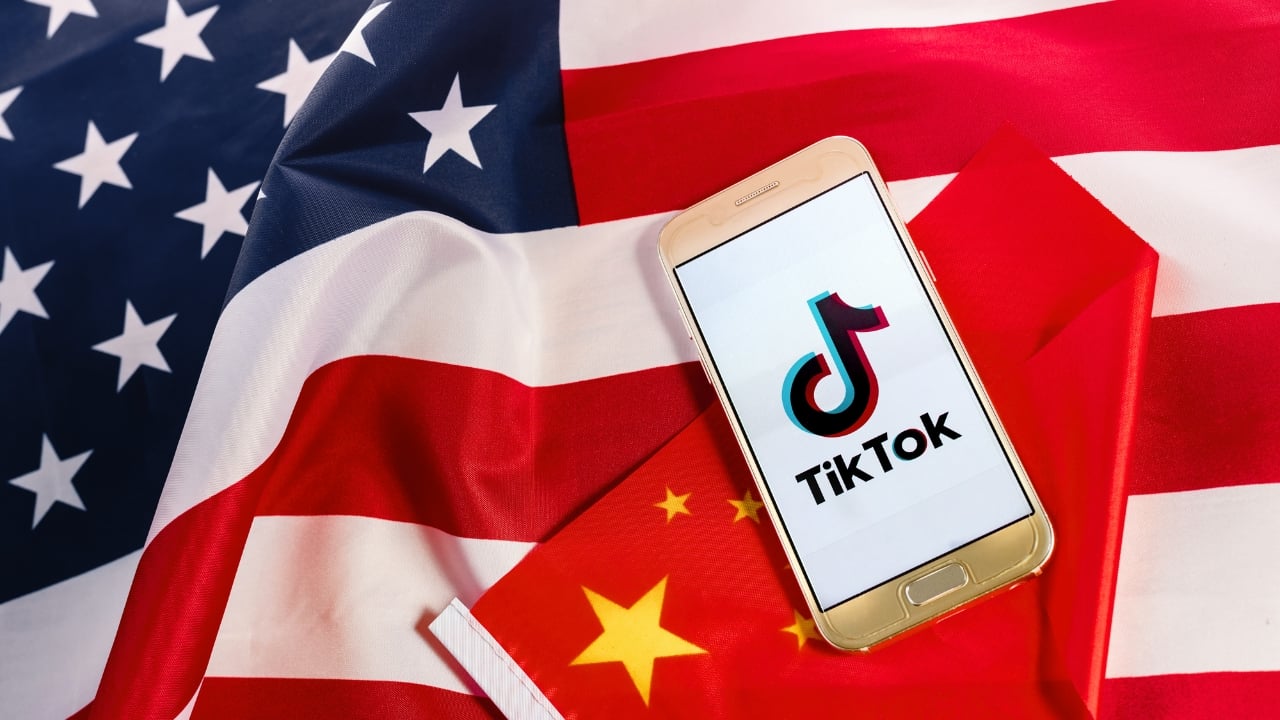
It wouldn’t be the first time something like this happened on the platform, after all. In December 2022, the New York Times found that four Bytedance employees based in the US and China had accessed geolocation data to track a handful of US reporters' movements to track leaks.
ByteDance and TikTok had initially categorically denied the allegations, claiming the company “could not monitor US users in the way the article suggested.” But after an investigation, it was found that the accusations were true. The four employees were hastily fired, and officials from Bytedance said it would take additional steps to protect users’ data.
But since then, TikTok has received multiple fines for mishandling users’ data. One £12.7 million fine by the Information Commissioner’s Office (ICO) in April 2023 found the app had failed to protect the privacy of children after it allowed up to 1.4 million children under 13 to use its platform despite its own rules not allowing children that age to create an account.
What about TikTok Shop? Is that safe?
TikTok Shop, the shopping platform available on the TikTok app, has its own set of safety risks that users should be aware of.
Unlike established marketplaces, TikTok Shop doesn’t have rigorous seller verification processes, making it easier for scammers to operate. This means that counterfeit and low-quality items are a common problem, prices can be suspiciously low, and the products received may not match the advertised descriptions.
Some sellers have also been known to disappear after receiving payment, leaving buyers with no product and no recourse. There has also been difficulty contacting sellers, unresponsive customer service, and lack of resolution for issues are common complaints.
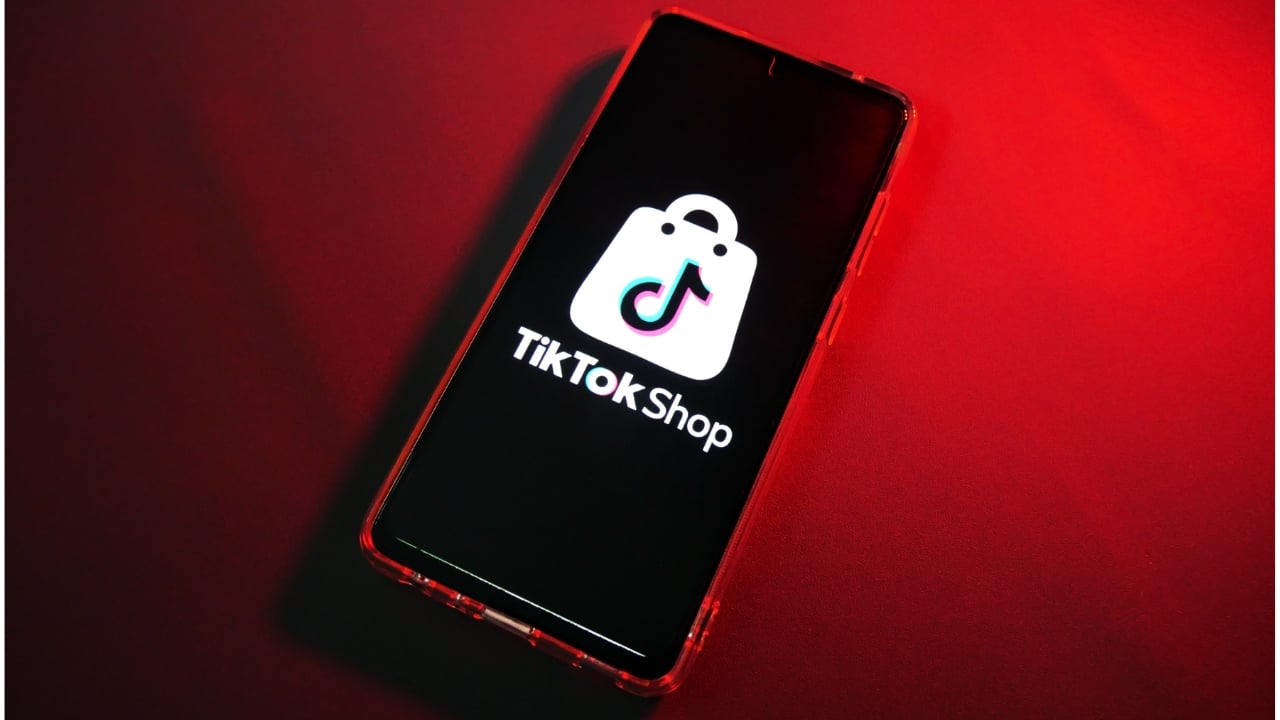
Since TikTok itself raises data privacy concerns, some users worry that their shopping data might be less secure on the platform.
While TikTok Shop offers some buyer protection policies, it's crucial to be cautious when using it. It's important to stick to reputable sellers, carefully review product descriptions and reviews, and be aware of the potential risks involved.
What data does TikTok collect?
According to TikTok’s privacy policy, the platform collects a comparable amount of user data compared to other major social media platforms like Facebook and Instagram. This data includes device and usage information, user content, location data and tracking data.
Here is a breakdown of all the data TikTok collects:
1. Device Information
TikTok is known to collect device identifiers like your phone's IMEI number and your advertising ID, which are used to uniquely identify your device and track your activity across the platform.
TikTok also collects your IP address, which reveals your approximate location and internet service provider. This information is used for personalised reconnemdations, targeted advertising, and to comply with local laws and regulations.
2. Usage Information
Along with information about your device, TikTok is also known to collect data on how you use the app. This includes things like how long you use the app, what features you use, and which videos you watch and interact with.
The platform also collects browsing information within the app, which includes the content you've viewed within the app, including searches and viewed profiles.
3. User Content data
TikTok also stores data about Videos you create and upload. This includes the audio and visual content of your videos, as well as any captions or descriptions you add. It also stores your comments and conversations with other users.
4. Location Data
This is based on your IP address and can be used for personalized recommendations and targeted advertising. While TikTok claims it doesn't collect precise GPS data in the US by default, the situation can differ in other regions where location services are available.
TikTok states it stores user data in servers located in the United States, Singapore, and Malaysia. However, concerns remain regarding potential access by the Chinese government due to ByteDance's ownership If you grant permission, TikTok can access your exact GPS location, which can be used for features like geotagging videos.
5. Tracking information
These are used to track your activity across the web and build a profile of your interests. This data is used for targeted advertising and personalising your experience on other platforms as well. n some instances, TikTok might collect keystroke patterns or rhythms, which can be used for user identification and potentially even analyzing your typing behavior.
6. Contact information (optional)
If you allow it, TikTok will access and collect information like names, phone numbers, and email addresses from your contacts. It will then try to match this information with existing users on the platform.
When you sign up or log in using a third-party service like Facebook, Instagram, or Google, TikTok may also collect your public profile information (such as nickname), email, and contact list.
TikTok security risks and scams
TikTok, like many other social media platforms, can be a breeding ground for scammers, so it’s important to be wary of unsolicited messages or requests for money while using the app.
Here are some of the most common scams on TikTok to watch out for:
1. Easy Money Offers and Fake Giveaways
Easy money offers and fake giveaways are common scams on TikTok, designed to trick people into giving away personal information or money. Scammers lure you in with the idea of getting rich quickly or winning a big prize for minimal effort, like liking, following, or sharing a post.
Or you might even be directed to click a phishing link or fill out a form that leads to a fake website designed to steal your personal information like passwords or credit card details.
Scammers might claim they can multiply your money if you send them gift cards or cryptocurrency. This is always a lie.
2. Duplicated Celebrity and Influencer Accounts
Duplicated celebrity and influencer accounts are a type of scam on TikTok where imposters create fake accounts pretending to be real celebrities or influencers. Scammers steal profile pictures, videos, and other content from the real celebrity's account to make their fake account appear legitimate. They might even try interacting with fans in the comments section to further build trust.
Once they gain a following, they often use the fake account to promote other scams, such as cryptocurrency scams, phishing attacks, or promoting fake products or giveaways.
3. Romance Scams
Romance scams are a form of online fraud where scammers pretend to be romantically interested in someone to manipulate them into sending money or personal information. On TikTok, Romance scammers often reach out to a large number of people through direct messages or comments on their videos.
nice the scammer feels they have gained the target's trust, they'll start asking for money, often for emergencies, investments, or travel to meet. They might also pressure you to send compromising photos or videos which they can then use for sextortion.
4. Bot Accounts
Bot account scams are a common issue on TikTok, where scammers use automated accounts to deceive users. Scammers use bots to inflate their follower count, making their accounts appear more legitimate and influential. These can be programmed to post comments with malicious links, tricking users into clicking and potentially revealing personal information or downloading malware.
Read: Criminals Using TikTok Trend to Spread Malware
Bots might hype up products or services in comments or direct messages, often leading to shady websites or scams. Scammers also use bots to generate likes, comments, and views on their content, creating a false impression of popularity.
5. Phishing
Like other types of social engineering, Phishing scams on TikTok involve scammers attempting to trick you into revealing sensitive information like your login credentials, personal details, or financial data.
Scammers send you direct messages on TikTok, pretending to be from TikTok itself, a celebrity, an influencer, or a legitimate company. You might also receive emails promising account verification, increased followers, sponsorships, or other incentives.
Once you click on the link on these emails, however, the website will ask for your login credentials, personal information, or financial details. And once they have these details, they can gain access to your TikTok account allows them to post spam, impersonate you, or even sell your account.
6. Fake Products and Services
Bogus Products and Services scams on TikTok involve scammers promoting fake or misleading products and services through the platform. Scammers might advertise brand-name items at unrealistically low prices, but the actual products received are often cheap imitations or completely different items.
Scammers create hype around products promising unrealistic results, like weight loss pills with magical properties or skincare products with instant transformations. Some scams also offer "free trials" that automatically convert to paid subscriptions without clear notification, leading to unexpected charges.
If something sounds too good to be true, it probably is. Be wary of products or services promising instant results or miraculous benefits.
Final Thoughts
Like with any social media platform, it's crucial to be aware of the potential risks involved with using TikTok. The vast amount of data collected by the app and Byte Dance's lack of complete transparency and potential access to this data by the Chinese government mean that users will need to use the app with caution.
Like any online platform, responsible usage, cautious behaviour, and awareness of common scams are essential for staying safe and protecting your privacy on TikTok.





